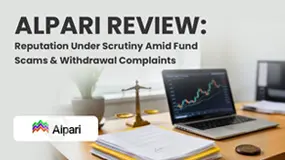Abstract:The spread of forex trading is the difference between the sell price and the ask buy price. Whether you’re a beginner or an experienced trader, this article may help you understand spreads, and learning how to minimize them can make a significant difference in your trading.

The spread of forex trading is the difference between the sell price and the ask buy price. Whether youre a beginner or an experienced trader, this article may help you understand spreads, and learning how to minimize them can make a significant difference in your trading.
About Forex Trading Spread
The spread in forex is effectively the brokers fee for executing your trade. If EUR/USD is quoted at 1.1840/1.1842, the spread is 2 pips (1.1842 − 1.1840 = 0.0002). Every time you open a trade, you start at a small loss equal to the spread, because you buy at the higher ask price and sell at the lower bid price.
Types of Spreads
There are normally two types of spreads in the forex market.
- Fixed Spread
It can remain constant regardless of market conditions. However, its cost is often higher than typical variable spreads.
2. Variable (Floating) Spread
Variable spread fluctuates based on market volatility, liquidity, and urgent events. It offers lower costs during quiet market hours. However, it can widen dramatically during high-impact news, increasing risk.
Why Spread Matters
- Cost of Entry and Exit: Each round-trip trade must overcome the spread before you can profit. A 2‑pip spread on a 1‑lot (100,000 units) EUR/USD trade equates to $20 in costs before you even break.
- Scalping and High-Frequency Strategies: When you aim for small gains per trade, wide spreads can wipe out your profits. Scalpers often seek brokers offering sub-1‑pip spreads to make their strategy viable.
- Risk Management: Wider spreads increase the distance between your entry price and stop‑loss level, affecting position sizing and overall risk.
Factors That Influence Spread
- Market Liquidity: Major pairs like EUR/USD and USD/JPY generally have the tightest spreads. Exotic pairs often carry spreads of 3–10 pips or more.
- Trading Hours: Spreads are usually narrower during the London and New York sessions—when liquidity peaks—and widen during Asian and overlapping “quiet” periods.
- News Releases: Central bank announcements, economic releases, and political events trigger volatility, causing spreads to balloon temporarily.
- Different Types of Brokers:
- ECN/STP Brokers pass your order directly to the interbank market and typically offer very low spreads but charge a commission per trade.
- Market Maker Brokers set their spreads, and their spreads can be wider.
How to Minimize Spread Costs
- Choose the Right Broker: Compare ECN/STP brokers with competitive commission structures against market‑maker brokers with tight fixed spreads.
- Trade Major Currency Pairs: Stick with major currency pairs to benefit from deep liquidity and low spreads.
- Avoid News-Time Trading: Unless youre a volatility specialist, steer clear of opening new positions right before high-impact releases.
- Use Limit Orders: Placing limit orders can sometimes get you filled inside the spread, reducing your effective cost.
- Monitor Trading Hours: Schedule your trades when spreads are typically at their lowest.
Conclusion
By understanding how spreads work and finding a way to minimize them, you can lower your trading costs, improve your risk management, and ultimately enhance your profitability.










